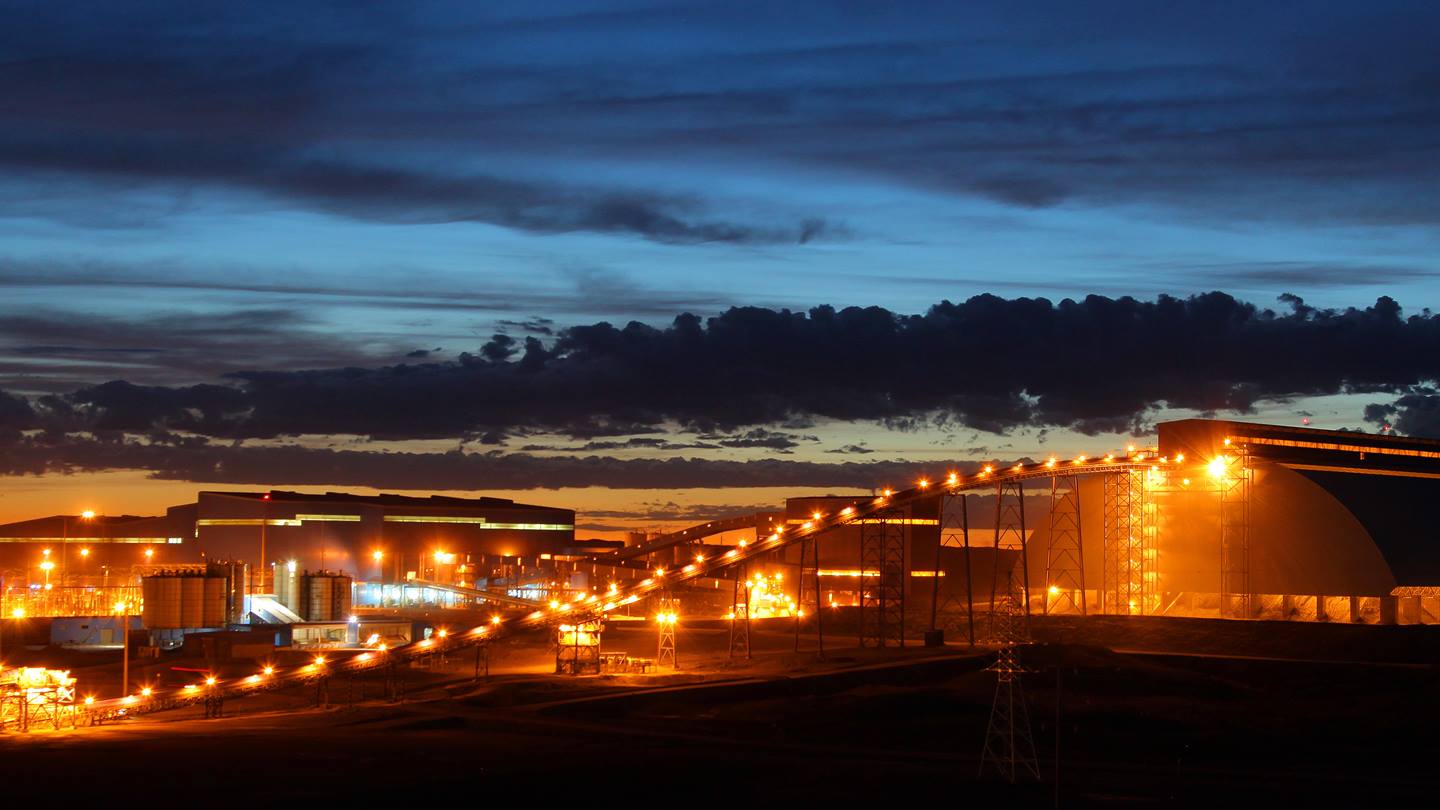
The underground extension at Oyu Tolgoi has long been an embattled project, touted by as one of the world’s largest copper-gold deposits but beset by delays, development struggles, and cost blow-outs that have led to tensions between the Government of Mongolia and operator Rio Tinto.
Oyu Tolgoi is operated by Rio Tinto via the multinational miner’s majority ownership of Turquoise Hill Resources, which in turn owns 66% of Oyu Tolgoi with the remaining stake held by the Mongolian state.
Open pit mining began at Oyu Tolgoi a decade ago, but Rio Tinto has long maintained that the bulk of the site’s value sits underground. In 2015, Rio Tinto and Turquoise Hill Resources signed a development and financing plan with the government, which provided the basis for the funding of the underground expansion. In 2016, the companies signed off on a $5.3bn development cost for the expansion but a revised estimate last year came in almost $1.5bn over the mark, with work towards production in 2022 now estimated to cost $6.75bn.
In an update, Turquoise Hill said the government had advised Rio Tinto of its dissatisfaction with the results of the company’s definitive estimate for the Oyu Tolgoi underground expansion, which revised the budget to $6.75bn. Rio Tinto said that increased estimate accounted for the known and forecast impacts of the Covid-19 pandemic, but the government has become concerned that rising development costs are eroding any economic benefit it would receive from the mine expansion. According to Turquoise Hill, “the Government of Mongolia has indicated that if the Oyu Tolgoi project is not economically beneficial to the country, it would be necessary to review and evaluate whether it can proceed”.
Mongolia had already set up a committee to conduct an independent review into the cost increases and delays at the Oyu Tolgoi project before Rio Tinto issued its definitive estimate, with the committee expected to report back in mid-2021 after evaluating the project management, mine planning, cost management, and other relevant areas.
This is far from the first time the country has cast doubts over the project’s benefits. The project has been politically divisive in the country, with nationalist politicians calling for the arrangement to be renegotiated to better favour Mongolia. Despite its 34% stake in the mine, the government has in the past borrowed from Rio Tinto to fund its share of development and construction costs – Mongolia will not receive its share of revenue from Oyu Tolgoi’s expansion until its debts are repaid to the company.

US Tariffs are shifting - will you react or anticipate?
Don’t let policy changes catch you off guard. Stay proactive with real-time data and expert analysis.
By GlobalDataRio Tinto’s concerns over its relationship with the Government of Mongolia were actually relieved in December 2019, when the country’s parliament unanimously reconfirmed the validity of all Oyu Tolgoi mine-related agreements that had been approved in the past decade.
Rio Tinto said: “Rio Tinto has been informed by the Government of Mongolia that it may unilaterally terminate the Underground Development and Financing Plan (UDP). Rio Tinto and its partners have thus far invested over $11bn since 2010 based on the foundational agreements: IA, ARSHA, and UDP. Each of these agreements was managed with the Government of Mongolia and within the governance framework as agreed and accepted. Rio Tinto has been engaged with the Government in good faith in relation to the topics raised in Resolution 92 and remains open to improving the UDP to increase the benefits of Oyu Tolgoi to all shareholders.
“Oyu Tolgoi LLC, Rio Tinto and Turquoise Hill Resources are committed to working with the Government of Mongolia to ensure that [Oyu Tolgoi] remains on track for the next phase of its underground development, which unlocks the most valuable part of the project, and are continuing to evaluate all viable alternatives for a successful resolution of the outstanding issues with the Government of Mongolia.”
Turquoise Hill separately said that it is “committed to engaging immediately with the Government of Mongolia and Rio Tinto” to address issues around the Oyu Tolgoi development and finance plans with consideration to the economic benefits being adequately shared between all parties.
Oyu Tolgoi is expected to be the fourth largest copper mine in the world by 2030 and constitutes an important asset for Rio Tinto’s growth plans. But with Mongolia’s presidential election slated for June 2021, the tensions around Oyu Tolgoi’s delays and benefit to Mongolia’s economy could bring the issue back to the fore in Mongolian politics.



